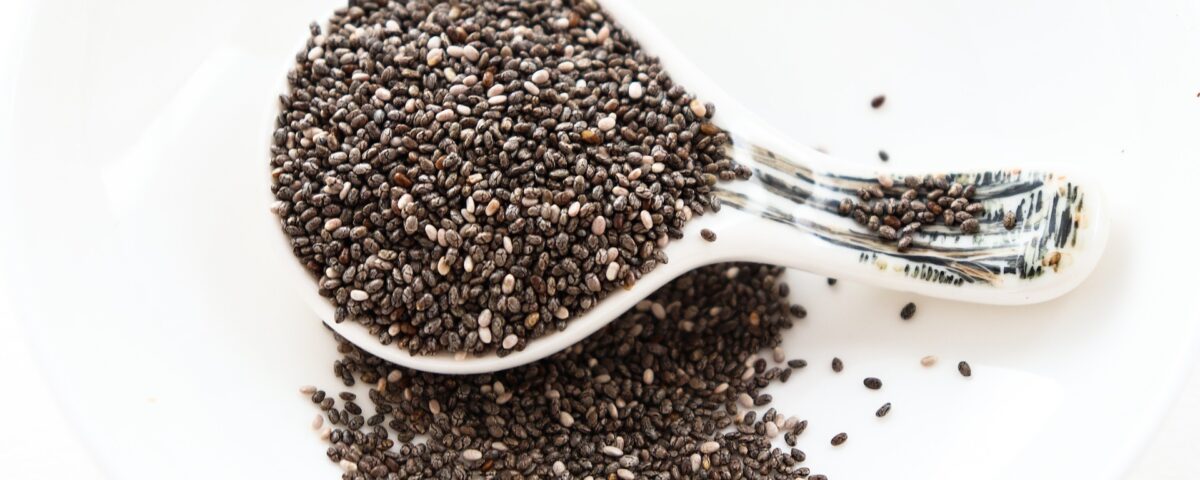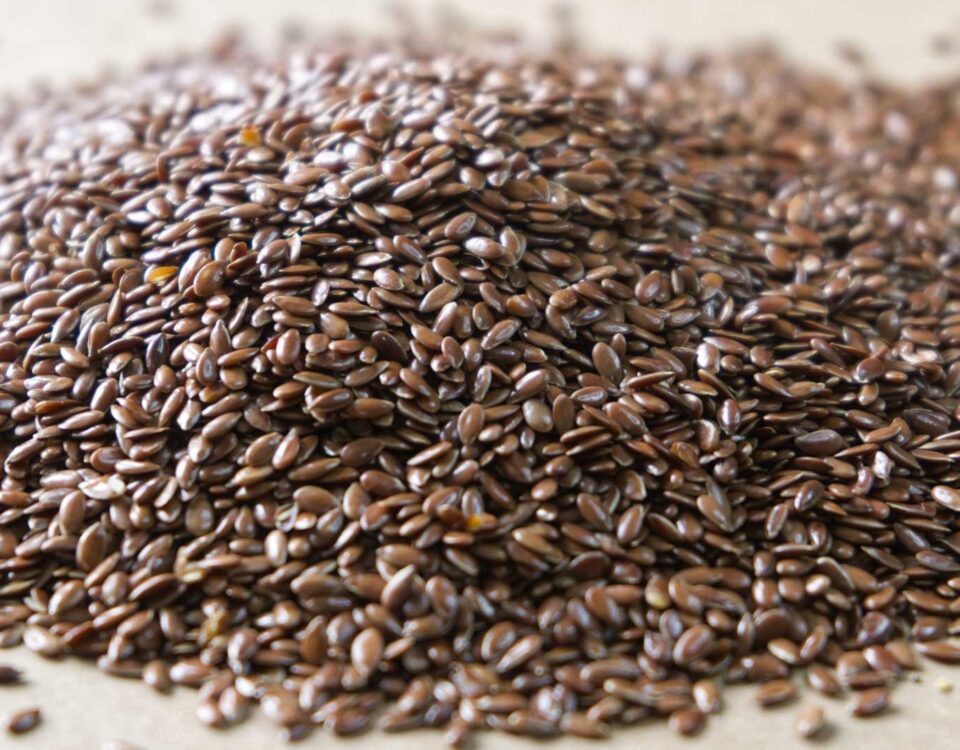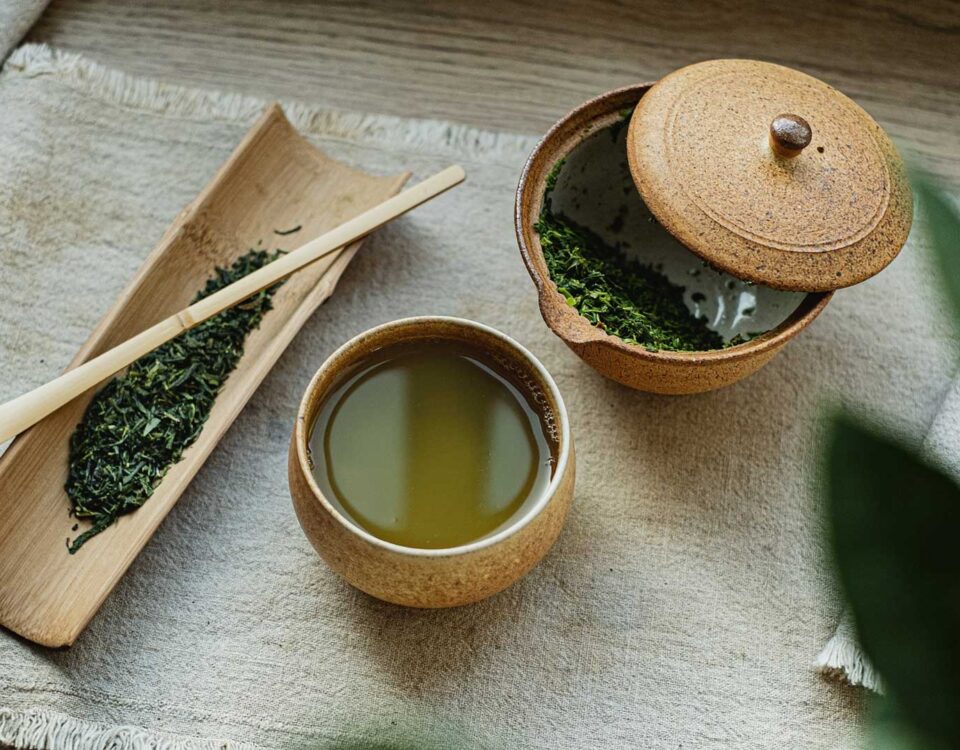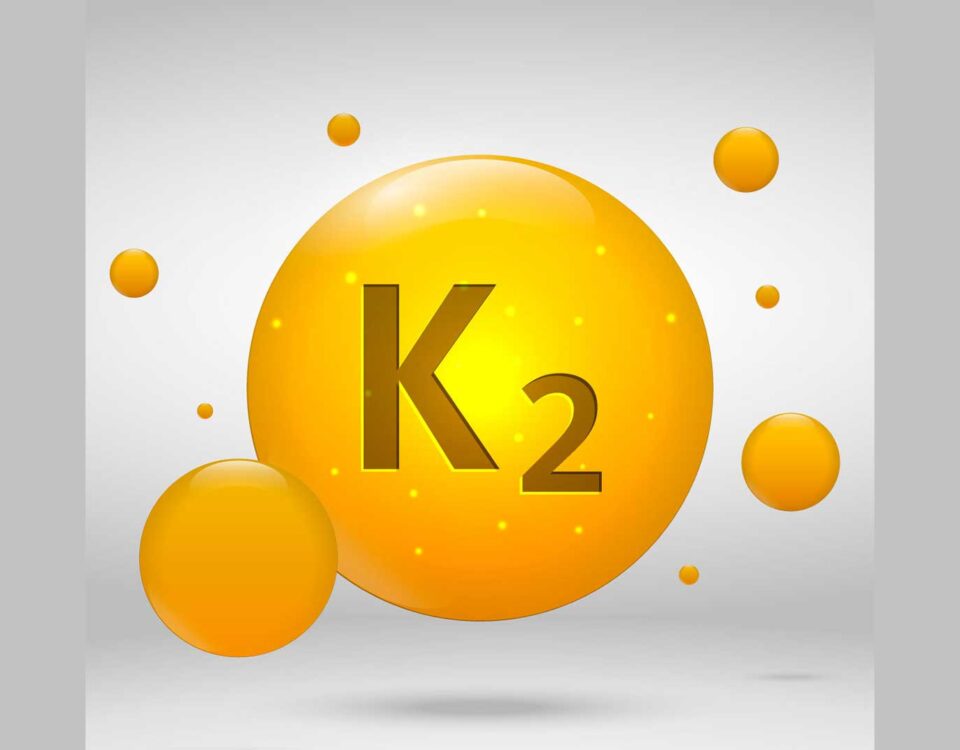Chia seeds are small black or white seeds that come from the plant Salvia hispanica, which is native to Mexico and Guatemala. They have become increasingly popular in recent years due to their many health benefits and versatility in cooking.
The fiber in Chia Seeds
One Major health benefit of chia seeds is their high fiber content. Fiber is important for digestive health, and can also help lower cholesterol and regulate blood sugar levels. Chia seeds are also a good source of protein, healthy fats, and various micronutrients such as calcium and magnesium.
Essential Fatty acids in Chia Seeds
Chia seeds are an excellent source of essential fatty acids, specifically alpha-linolenic acid (ALA), which is an omega-3 fatty acid. Omega-3 fatty acids are considered essential because the body cannot produce them on its own and they must be obtained through the diet.
ALA is converted into the longer-chain omega-3 fatty acids EPA and DHA in the body, which are known for their anti-inflammatory properties and important roles in brain function, heart health, and immune system function.
In addition to omega-3 fatty acids, chia seeds also contain omega-6 fatty acids, such as linoleic acid. Omega-6 fatty acids are also essential, but it’s important to maintain a balance between omega-3 and omega-6 fatty acids in the diet for optimal health.
Overall, chia seeds are a great plant-based source of essential fatty acids, and incorporating them into your diet can help support overall health and well-being.
Protein in chia seeds
While chia seeds are not typically considered a high-protein food, they do contain a modest amount of protein for their size. One ounce (28 grams) of chia seeds provides approximately 4 grams of protein, which is equivalent to about 7% of the daily recommended intake for adults.
While chia seeds may not be a significant source of protein on their own, they can be combined with other protein-rich foods to create a balanced meal. For example, adding chia seeds to a smoothie with Greek yogurt or blending them into oatmeal with nuts and seeds can increase the protein content of the meal.
B vitamins in chia seeds
Chia seeds are a good source of several B vitamins, which play important roles in energy production, brain function, and cell metabolism.
One ounce (28 grams) of chia seeds provides approximately:
- Thiamine (B1): 0.2 mg (13% of the daily recommended intake)
- Riboflavin (B2): 0.1 mg (8% of the daily recommended intake)
- Niacin (B3): 2.5 mg (13% of the daily recommended intake)
- Pantothenic acid (B5): 0.4 mg (4% of the daily recommended intake)
- Pyridoxine (B6): 0.1 mg (9% of the daily recommended intake)
- Folate (B9): 16 mcg (4% of the daily recommended intake)
These B vitamins are involved in a variety of processes in the body, including converting food into energy, maintaining healthy skin and hair, supporting brain function, and helping to reduce inflammation. Overall, chia seeds are a good source of several B vitamins and can be a valuable addition to a balanced diet.
Minerals in chia seeds
Chia seeds are a good source of several important minerals that are necessary for overall health and well-being. Some of the key minerals in chia seeds include:
- Calcium: One ounce (28 grams) of chia seeds contains approximately 18% of the daily recommended intake of calcium, which is important for bone health and nerve function.
- Magnesium: One ounce of chia seeds provides about 30% of the daily recommended intake of magnesium, which is essential for muscle function, heart health, and bone health.
- Phosphorus: Chia seeds are also a good source of phosphorus, providing about 27% of the daily recommended intake in just one ounce. Phosphorus is important for healthy bones, teeth, and cell function.
- Potassium: Chia seeds contain a small amount of potassium, which is important for maintaining healthy blood pressure and heart function.
- Zinc: Chia seeds are a good source of zinc, providing about 13% of the daily recommended intake in one ounce. Zinc is important for immune function, wound healing, and DNA synthesis.
- Iron: Chia seeds also contain a small amount of iron, which is important for transporting oxygen in the blood and maintaining energy levels.
Overall, chia seeds are a good source of several important minerals that are necessary for overall health and well-being. Incorporating chia seeds into a balanced diet can help support healthy bones, muscles, and organs, as well as support immune function and energy levels.
Antioxidants in Chia Seeds
Chia seeds are a good source of antioxidants, which are important for protecting the body against damage caused by free radicals. Free radicals can be defined as unstable molecules that can damage cells and contribute to the development of chronic diseases such as heart disease, cancer, & Alzheimer’s disease.
Antioxidants found in chia seeds include:
- Phenolic acids: Chia seeds contain several phenolic acids, including caffeic acid, chlorogenic acid, and ferulic acid. These compounds have been shown to have anti-inflammatory and antioxidant properties.
- Flavonoids: Chia seeds contain several flavonoids, including quercetin and kaempferol. These compounds have been shown to have antioxidant and anti-inflammatory properties and may help reduce the risk of chronic diseases.
- Carotenoids: Chia seeds also contain carotenoids such as lutein and zeaxanthin, which have been shown to have antioxidant properties and may help protect against age-related eye diseases.
Overall, the antioxidants in chia seeds may help protect the body against damage caused by free radicals and reduce the risk of chronic diseases. Incorporating chia seeds into a balanced diet, along with other antioxidant-rich foods such as fruits, vegetables, and whole grains, may help support overall health and well-being.
Chia seeds and weight loss
Chia seeds may be beneficial for weight loss because of their high fiber and protein content. The high fiber content in chia seeds can help promote feelings of fullness and reduce appetite, which may lead to a reduction in calorie intake and support weight loss efforts. Additionally, the protein in chia seeds can help support muscle growth and repair, which can aid in maintaining a healthy metabolism.
One study published in the Journal of Nutrition found that consuming chia seeds for breakfast led to decreased appetite and increased satiety, which may support weight loss efforts. Another study published in the British Journal of Nutrition found that chia seeds may help reduce belly fat and improve cardiovascular risk factors in overweight individuals.
It’s important to note, however, that while chia seeds may be a helpful addition to a balanced diet for weight loss, they should not be relied upon as the sole means of weight loss. A sustainable weight loss Program requires a combination of regular physical activity, healthy eating habits, and lifestyle changes. It’s also important to consume chia seeds in moderation, as they are high in calories and can contribute to weight gain if consumed in excess.
Chia seeds and blood pressure
Chia seeds may help support healthy blood pressure levels due to their high content of nutrients such as fiber, magnesium, and potassium.
Fiber: Chia seeds are high in soluble fiber, which has been shown to help lower blood pressure. Soluble fiber can bind to cholesterol in the blood, preventing it from being absorbed, which may help reduce the risk of heart disease and support healthy blood pressure levels.
Magnesium: Chia seeds are a good source of magnesium, which has been shown to help regulate blood pressure. Magnesium helps relax the blood vessels, allowing blood to flow more easily and reducing the risk of high blood pressure.
Potassium: Chia seeds are also a good source of potassium, which can help lower blood pressure by counteracting the effects of sodium in the diet. Potassium helps relax the blood vessels and improve blood flow, which can help support healthy blood pressure levels.
One study published in the Journal of Nutrition found that consuming chia seeds may help reduce blood pressure in individuals with hypertension. Another study published in the British Journal of Nutrition found that chia seeds may help improve several cardiovascular risk factors, including blood pressure, in overweight individuals.
While chia seeds may be a helpful addition to a balanced diet for supporting healthy blood pressure levels, it’s important to talk to a healthcare provider before making any significant changes to your diet or lifestyle.
Per day requirement of chia seed
There is no official recommended daily intake of chia seeds, but most health experts suggest consuming about 1 to 2 tablespoons (15 to 30 grams) of chia seeds per day as part of a balanced diet.
Consuming more than this amount is generally considered safe for most people, but it’s important to remember that chia seeds are high in fiber and may cause digestive discomfort or bloating if consumed in excess. It’s also important to stay hydrated when consuming chia seeds, as they absorb liquid and can lead to dehydration if not consumed with enough fluids.
If you’re new to consuming chia seeds, it’s best to start with a small amount and gradually increase your intake over time. You can add chia seeds to your diet by sprinkling them on top of oatmeal or yogurt, mixing them into smoothies, or using them as a thickener in recipes such as puddings or jams.
How to use Chia Seeds
Chia seeds can be added to a variety of foods, such as smoothies, yogurt, oatmeal, and baked goods, to boost their nutritional value. They can also be used as a vegan egg substitute in recipes that call for eggs.
When mixed with liquid, chia seeds form a gel-like substance due to their high soluble fiber content. This can be used to create a pudding-like consistency or to thicken soups and sauces.







